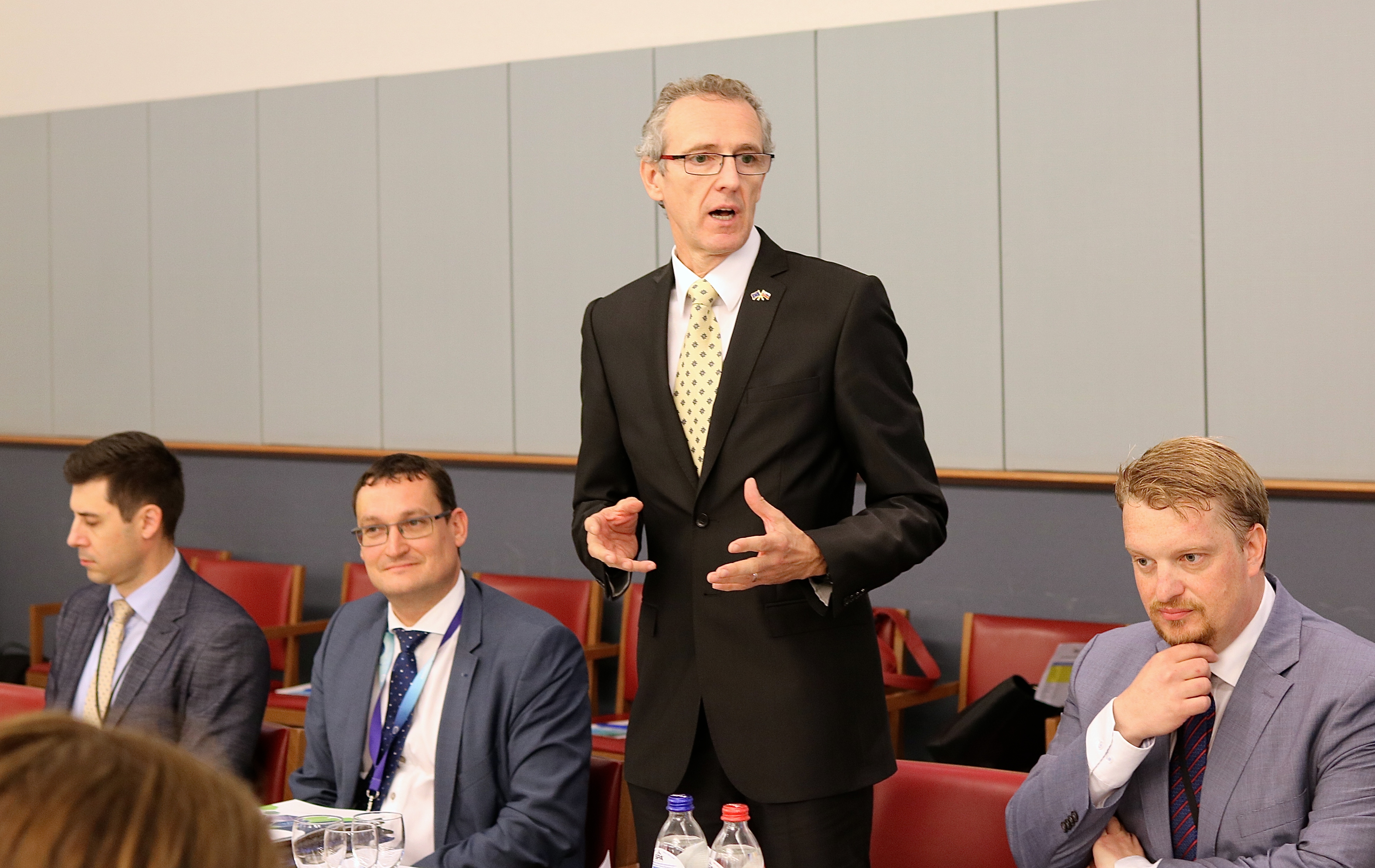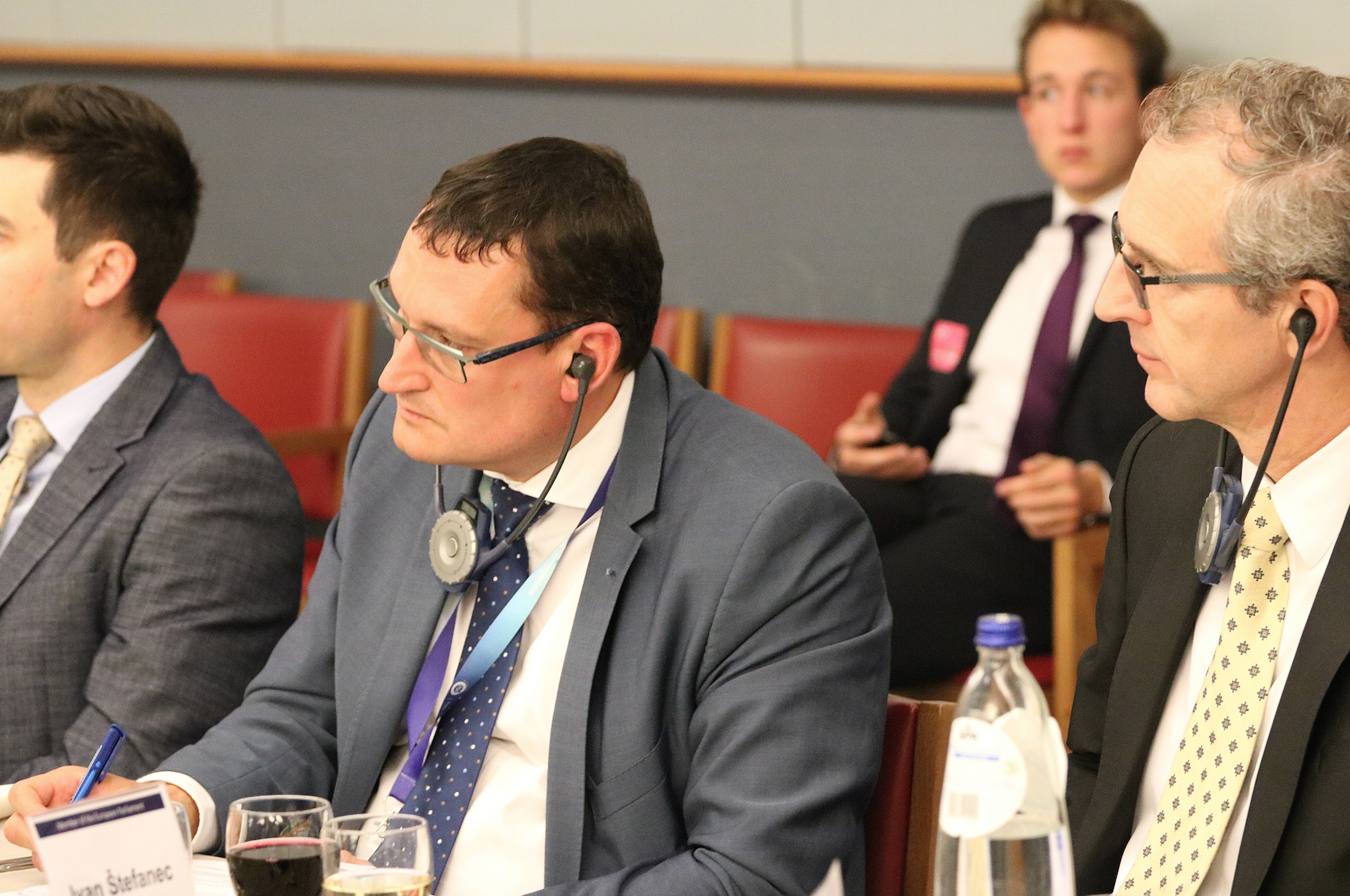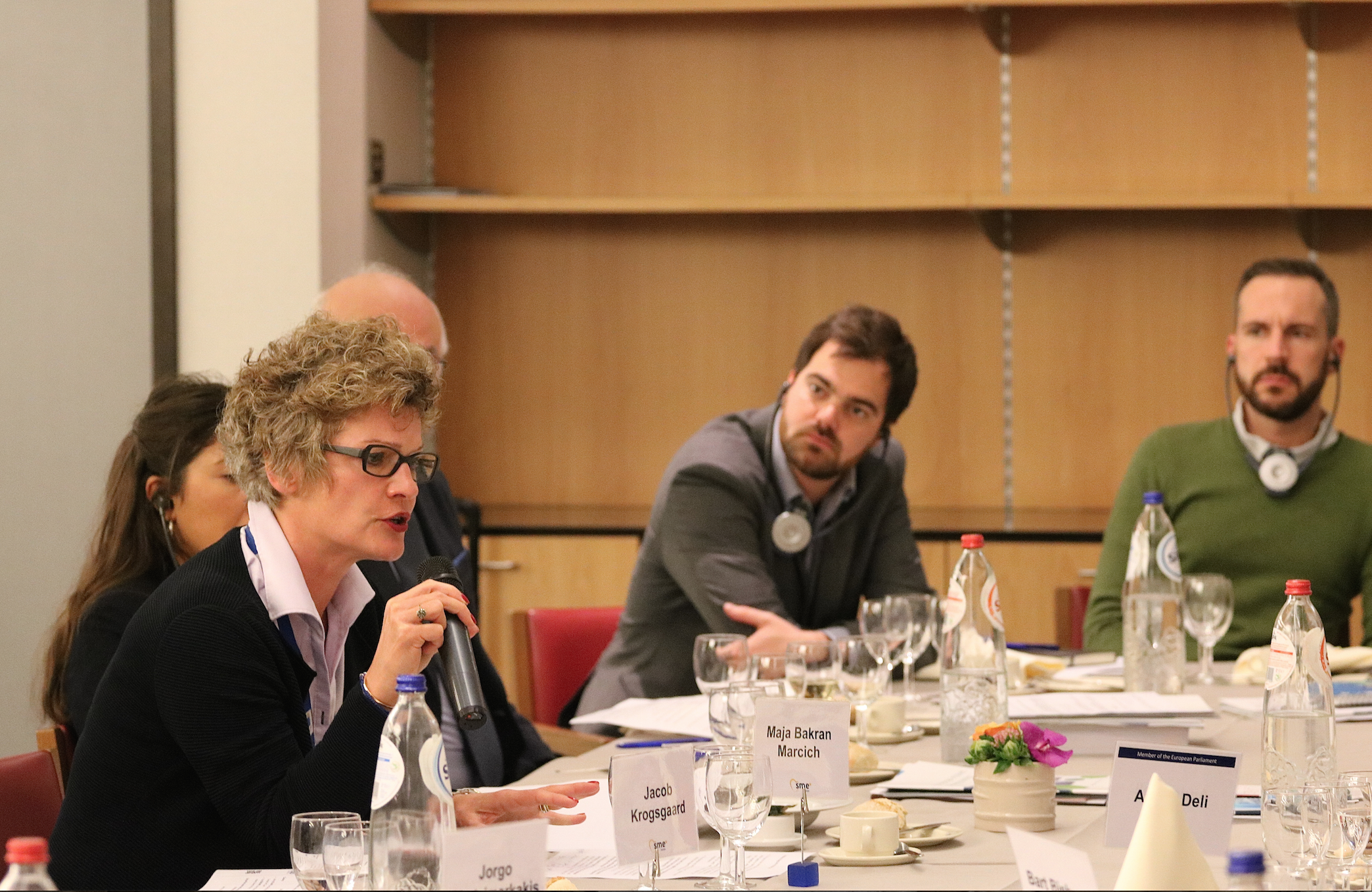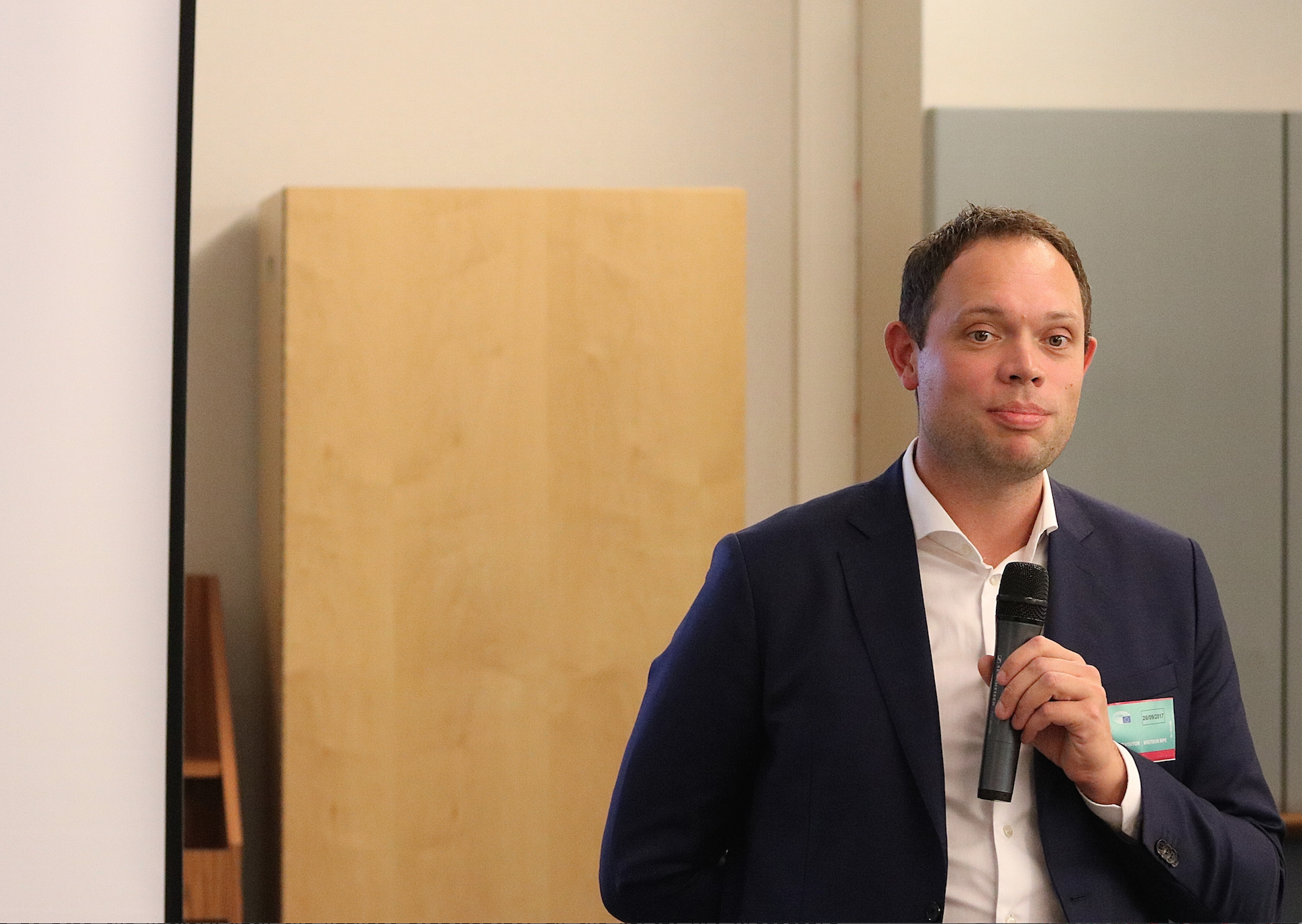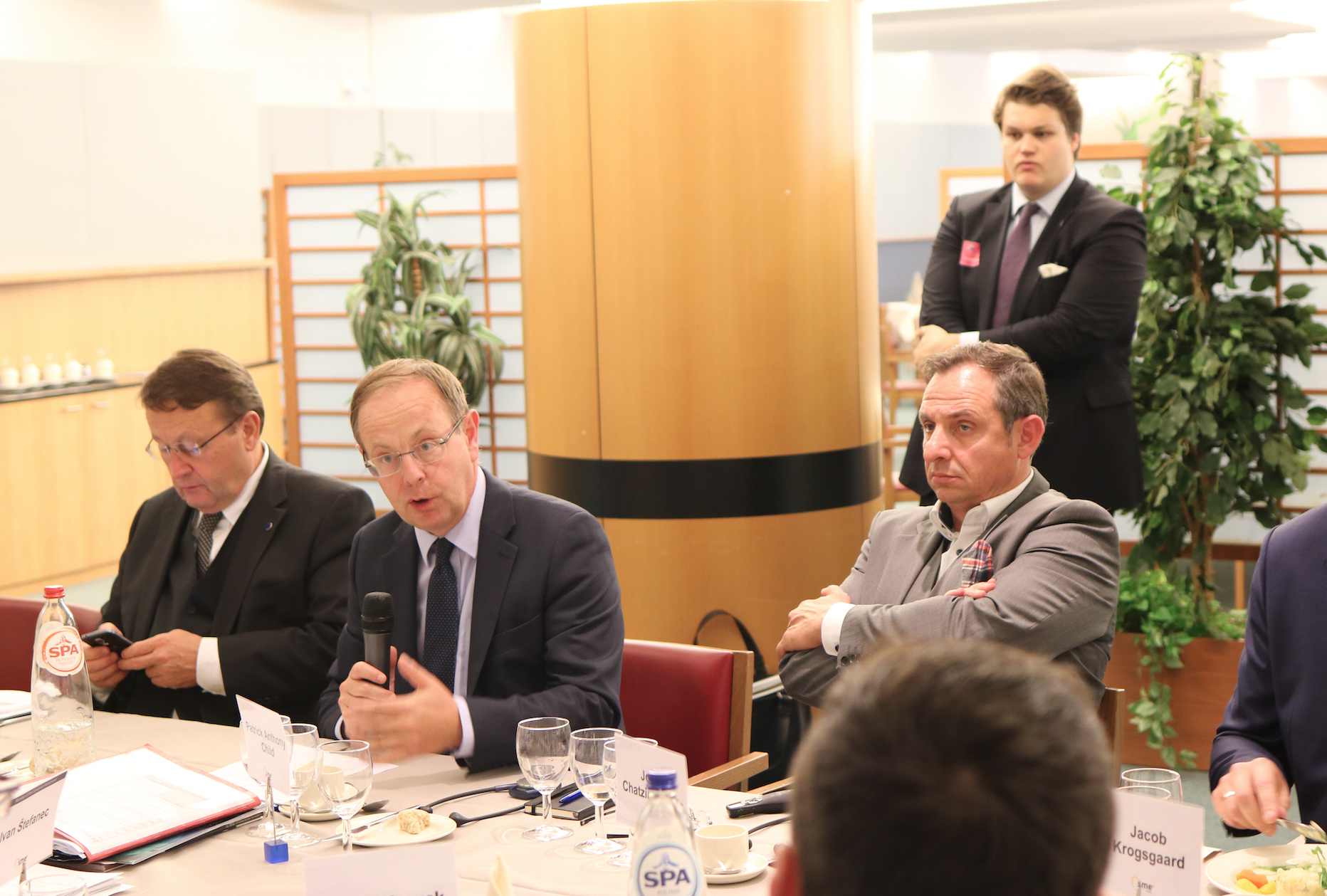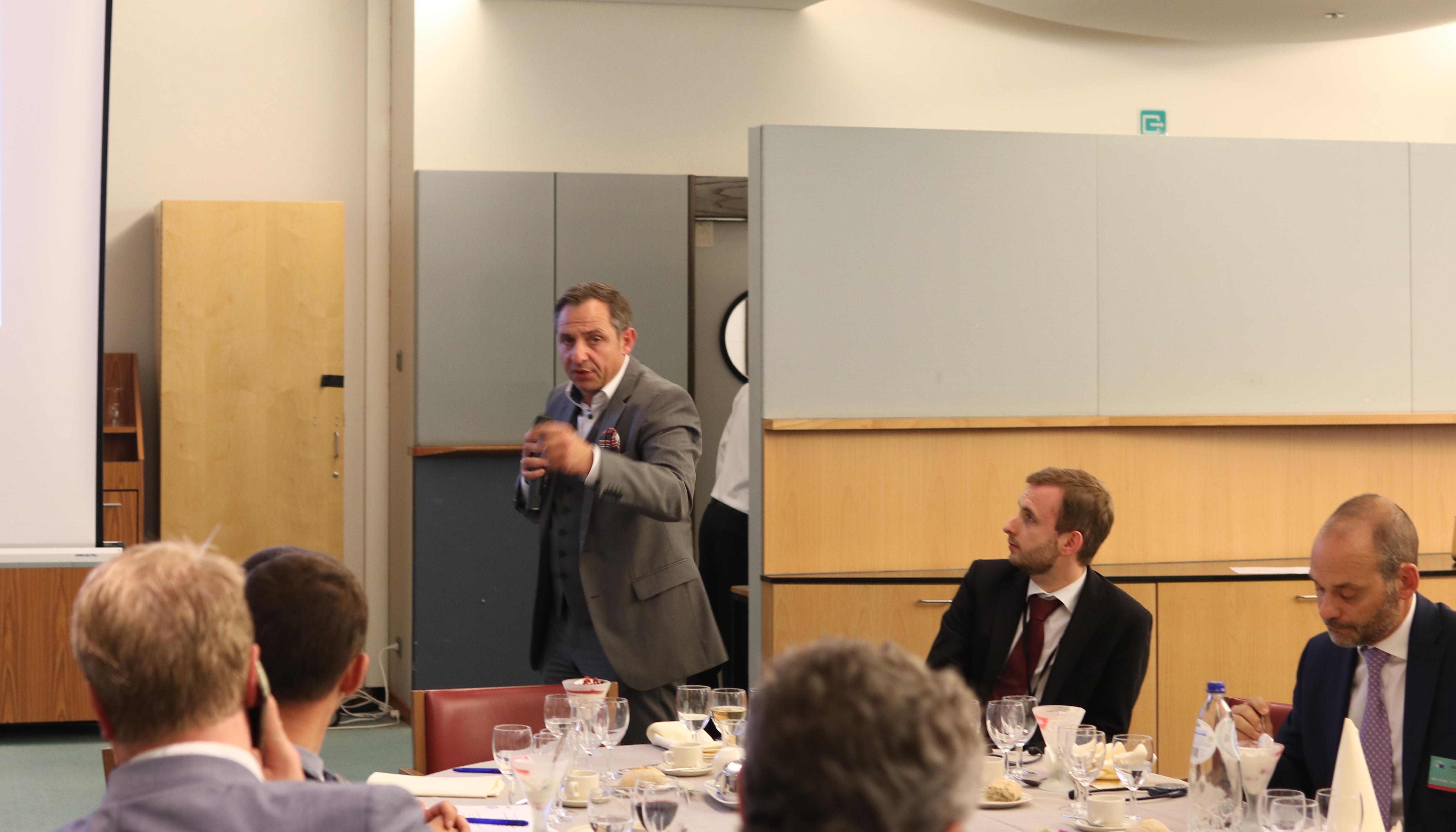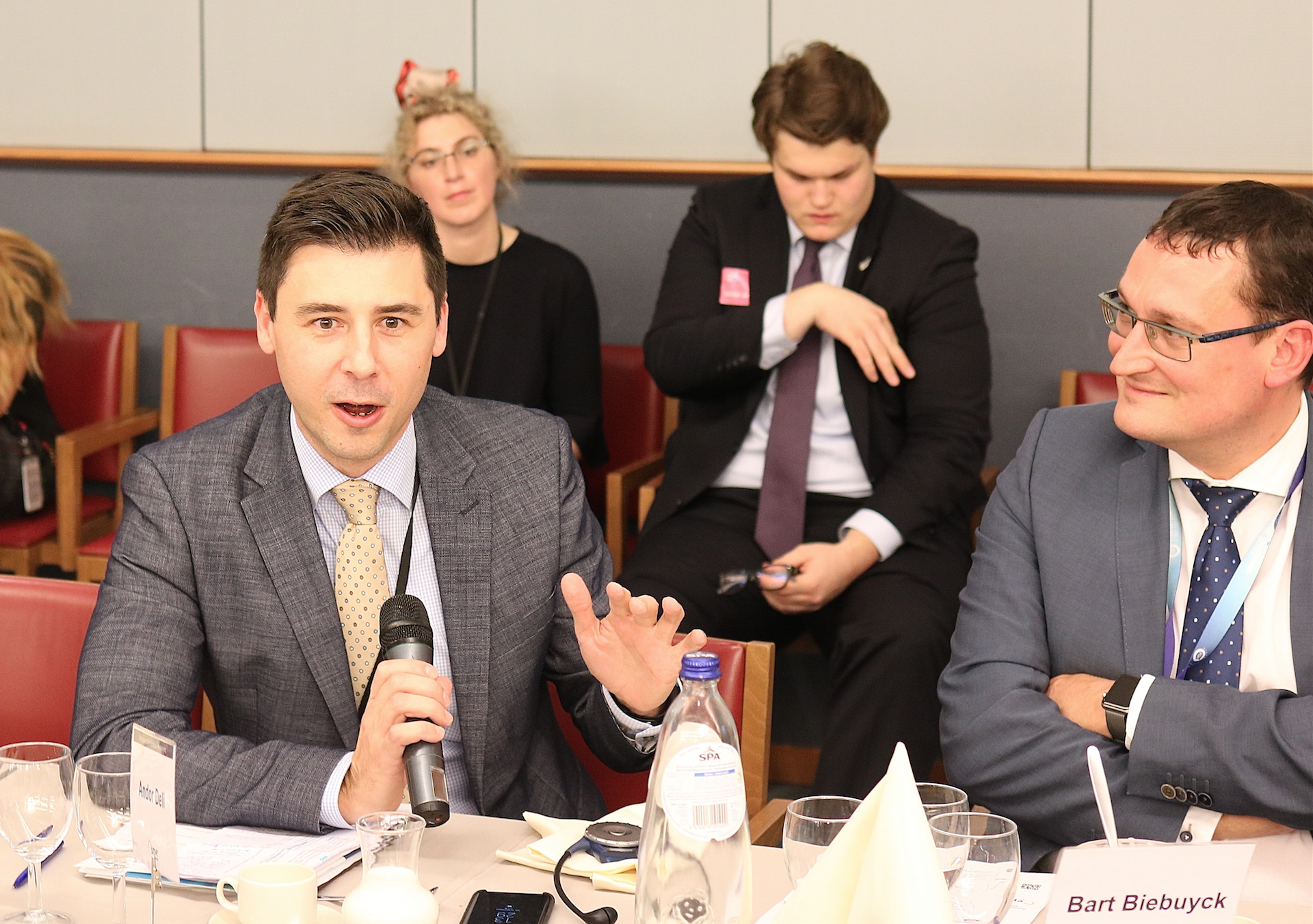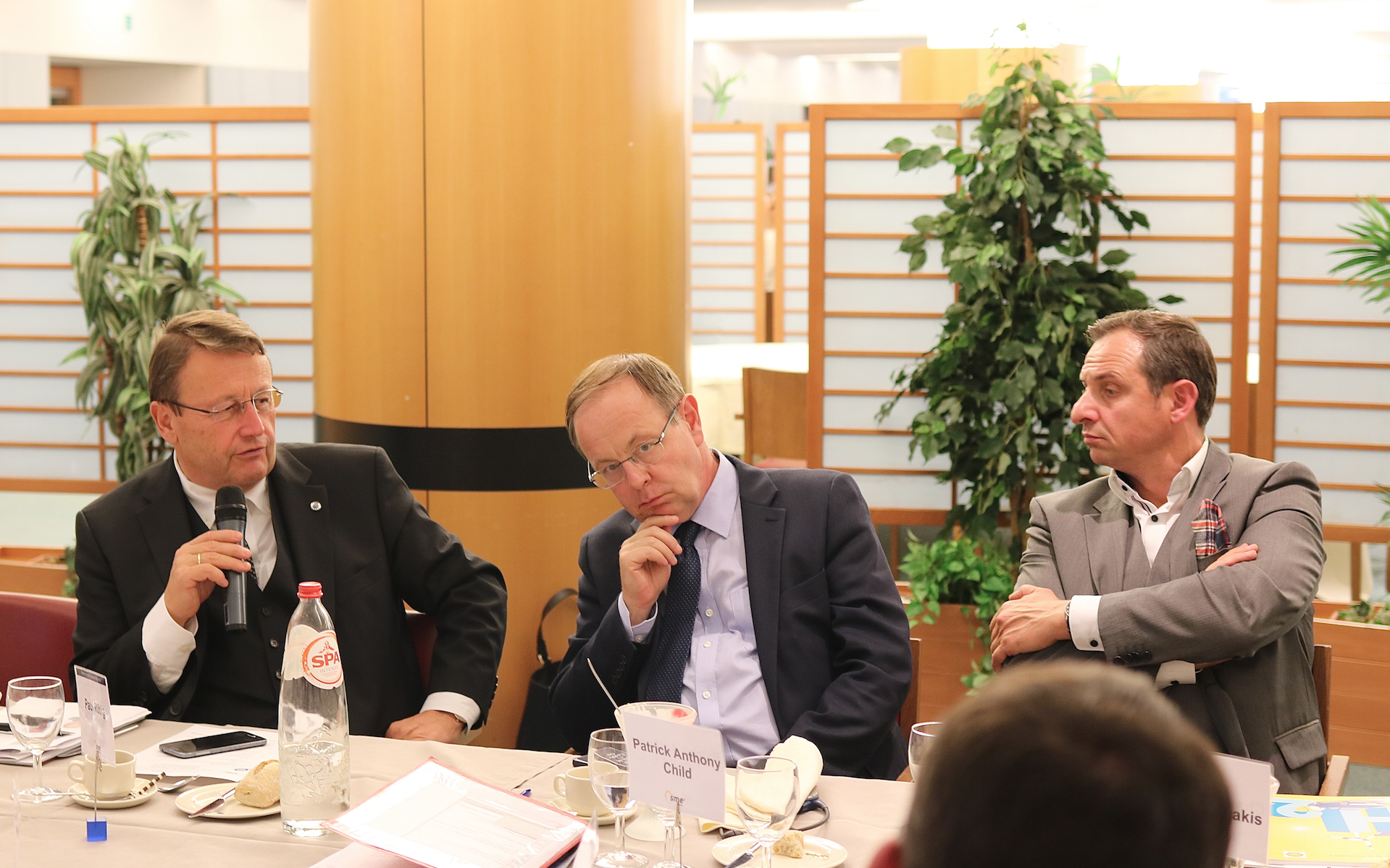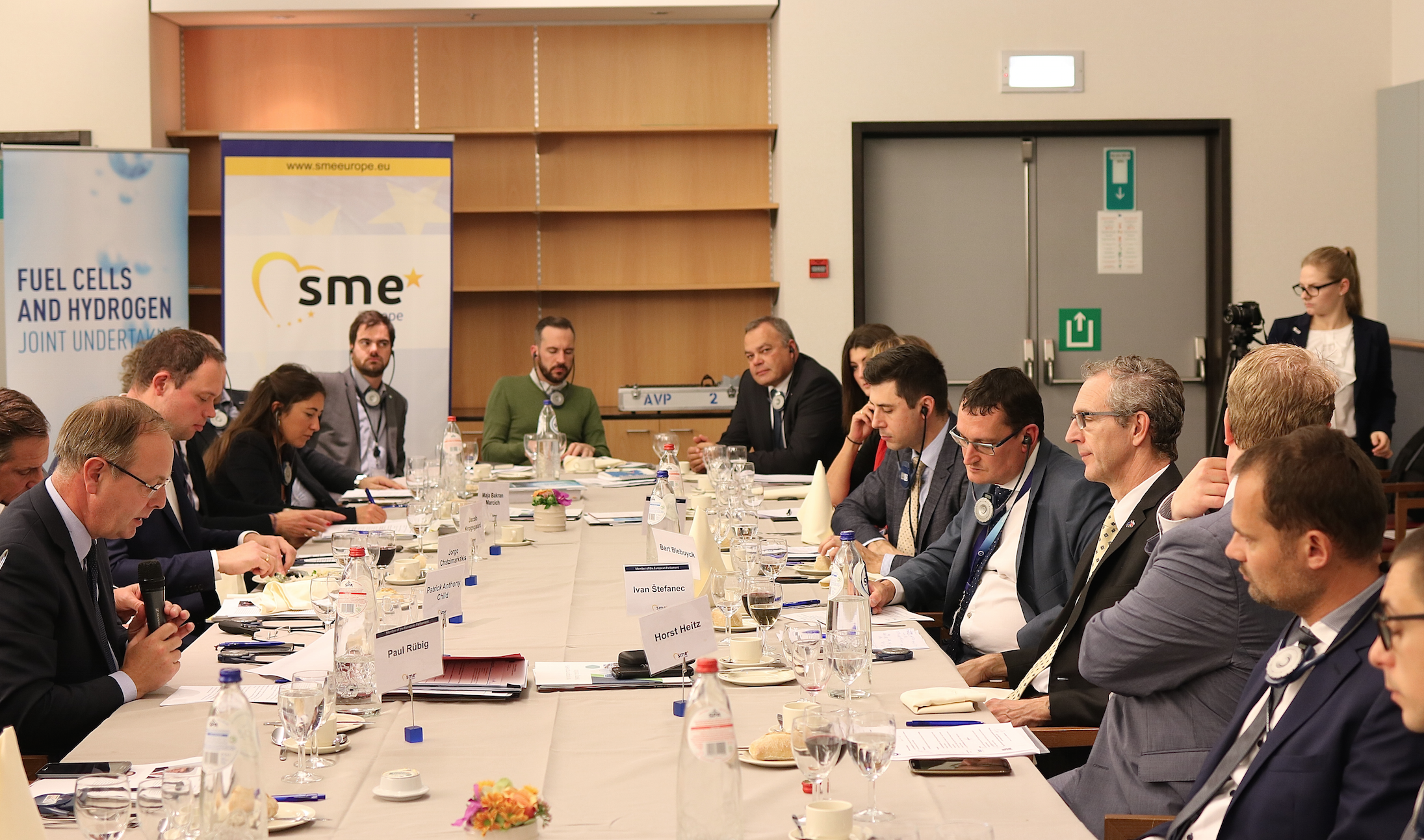FCH JU: “Collaborating with SME’s to make Fuel Cells and Hydrogen an Everyday Reality”
On 26th September 2017, SME EUROPE of the EPP in cooperation with the FCH-JU (Fuel Cells and Hydrogen Joint Undertaking), hosted a Working Lunch event in the European Parliament considering the following thematic: “Collaborating with SME’s to make Fuel Cells and Hydrogen an Everyday Reality”. The event featured the following speakers: Ivan Štefanec MEP, Vice-President of SME Europe, Member of IMCO; Bart Biebuyck, Executive Director Fuel Cells and Hydrogen Joint Undertaking; Maja Bakran Marcich, Deputy Director-General for Mobility and Transport, European Commission; Jacob Kroggsgard, Senior Vice-President of NEL, Producer of Hydrogen Refueling Stations; Patrick Anthony Child, Deputy Director-General for Research and Innovation, European Commission; Jorgo Chatzimarkakis, Secretary General, Hydrogen Europe; Andor Deli MEP, Board Member of SME Europe, Member of TRAN; Paul Rübig MEP, Honorary President of SME Europe, Member of ITRE.
Ivan Štefanec MEP opened the discussion with raising his hopes into the industry. As refueling stations will continue to expand all over Europe, Mr. Stefanec is confident in the total economic impact and the improvement of European competitiveness Hydrogen Fuel will provide.
Bart Biebuyck, considers Hydrogen – the missing link in decarbonizing Europe, not forgetting the advantages in energy security and the boost it gives European competitiveness. Hydrogen is not only one of the best ways for long term storage, but can be also used in the private and the industrial sector. The value for the SMEs cannot be denied, as more then 50 % of Hydrogen Europe´s Members are SMEs. The European technology advantage especially in the refueling sector hast now let to even supplying the United States. Concerning cars, the industry (especially startups) is working very hard to reach the commercialization level. As the US and Japan were progressing very fast in recent years, Europe has been falling back in mass commercialization. Mr. Biebuyck also states that for future progress, a clear policy is very important for trust, and he sees the mobility package as a unique chance. The results of the industry are already promising. Hydrogen Busses will be on the road next year, which is expected to raise the consumer awareness. Although producing green hydrogen is still more expensive then black hydrogen, Mr. Biebuyck is confident that shown commitment by the Commission will lead the industry to solutions very fast. With the US spending over 130 Mio $ and Japan spending over 350 Mio $, the global competition does not really allow any doubts. “While FCH 1 was all about Research, FCH 2 is all about bringing the products on the streets.”
Maja Bakran Marcich stated that the Commission does see the European Context of Fuel Cell Hydrogen Technology contributing to the three Priorities mentioned by Jean-Claude, Energy-Union, Jobs Growth and European Competitiveness, and we fully recognize that Hydrogen Fuel Cells could and are already playing an important role in our decarbonizing energy Transformation. She then continued recognizing that “Hydrogen Fuel Cars are silent, they produce only water and are at this point already, although it is still an emerging technology, can travel over long distances with one single 3-5 minute refuel. However, there is still a distance to go to commercialization for automatic applications.” The importance of SME´s for Research and FCH JU is an important program for the Commission and Mrs. Bakran thinks that this Joint Undertaking has provided another strong and stable growth platform for SME´s. The upcoming Mobility-Package was also point of Mrs Bakran´s statement: “the proposals to reduce carbon emission in the transport sector and the no comprehensive industrial policy strategy will help Europe to stay or become the world leader in innovation and digitalization.” According to Mrs. Bakran, the Commission is all on track to adopt legislative and non-legislative proposals in the field of clean transport within the second mobility-package at the beginning of November. The issue of investment financing in the concept of an alternative fuels infrastructure action plan to supply the deployment of an EU backbone infrastructure shall also be addressed. “The aim is to provide full coverage with charging points by 2025 (…) We are very much committed to progress further and deeper towards a truly functioning union and for that we need adequate funding to make sure Europe remains and is the program leader in particular the one we are talking about now.”
Jacob Krogsgaard drew a short picture of his history within the hydrogen fuel business. They founded the company in back in 2003, and after their graduation in 2006 and some time off to get some sufficient cash (which was just 5000 € each!), they became part of the NEL Group, which has a value of 270 Mio €. They´ve been able to secure access to refueling stations for 50% the Danish population within 15 kilometers, which makes it also the network with the highest availability in the world. Mr. Krogsgaard himself has been driving a Hydrogen Fuel car since 2015, and he has been happy ever since. As an SME himself, MR Krogsgaard is a strong supporter of the FCH JU. “We really couldn´t have done it without it” and continues “if hadn´t had the support of the FCH JU, we would have died during our expanding process.” While there still will be some time needed to commercialize Hydrogen Fuel cars, Hydrogen City busses are already in a mature stage today. Especially in the cities, they would make a huge impact targeting pollution. A new factory is already planned.
For Patrick Anthony Child, Joint Undertakings are a great contribution to boosting SMEs and the FCH JU is a very convincing example of that. Joint Undertakings (JU) as an instrument for collaborative research are a very good match for SMEs as they help overcoming sector fragmentation by bringing together various actors and facilitate cross-fertilisation of knowledge. The preliminary results of the interim evaluation of Horizon 2020 demonstrate that the FCH JU is the best among all the JUs in terms of share of financing that goes to SMEs. “Innovation is key, not only to our economic success but also our competitiveness.” In Mr Childs opinion, it is in Europe’s best interest to make SMEs flourish and he is very much looking forward to continue working towards this objective with SME Europe and his friends and colleagues within the European Parliament to further improve the already impressive success-story.
Jorgo Chatzimarkakis remarked that about half of the Members are SMEs but there are also very big players like BMW and Daimler, who was the first company to come to the market this year with a new hydrogen fuel car. “Our top political target is a zero-emission society. The most important problem we have to get there, is to get the energy into the system.” Accordind to Mr. Chartzimarkakis, hydrogen is the best way to store the energy and overcome the winter deficit. In addition, sectoral integration is crucial to provide sufficient supply. Talking cars, with a range of 800 kilometers and a 3-5 minutes refueling process, no one needs to compromise their lives. The value chain is another very important point for SMEs. The fear of job loss is a permanent follower concerning battery cars. In terms of competitiveness, he still sees a lot of room for improvement. “While we are fighting years to somehow get 90 busses on the road, it only took one phone call in Korea from the ministry to order over 200.” He continues: “We´re forgetting that we´re leading in some parts of the industry, and we can´t give it up now!”.
The Event was concluded by Andor Deli MEP and Paul Rübig MEP. Andor Deli MEP remarked that for him, as a Member of TRAN Committee, the knowledge about hydrogen in the automobile industry as well as its capabilities will be a valuable input for the future activities: “We might hold several conferences on new trends and showcase the future cars on motor-shows. However, our roads are not reflecting these innovations. Throughout Europe our reality is still based on a combustion engine eventually hybrid or electric vehicles with very limited range. In order to boost the wide-spread use of new technologies the role of SME’s is crucial. Therefore we should all work together to turn innovation into our everyday reality.”
Paul Rübig MEP believes that it will be needed to harmonize different projekts. “Sustainable Mobility will be a key role in the future, and this is also a question of sustainable ressources like electricity among others.” Not only the driving will play an important role, but also the continuous waste produced out of stopping at every red light and so on. For him, the dangers of battery driven cars and airplanes are evident. Especially the flammability of lithium scares him “Just imagine two tesla crashing in a parking garage in London.” Additionally, he shows awareness on the very uncertain recycling process. “I think hydrogen is a fantastic are in the future because it can be produced within the European Union, and we´re working seriously on Energy independence.”
The discussion was followed by the hydrogen vehicles test drive, coutesy of FCH-JU.
For more pictures from this Event, you are welcomed here.

